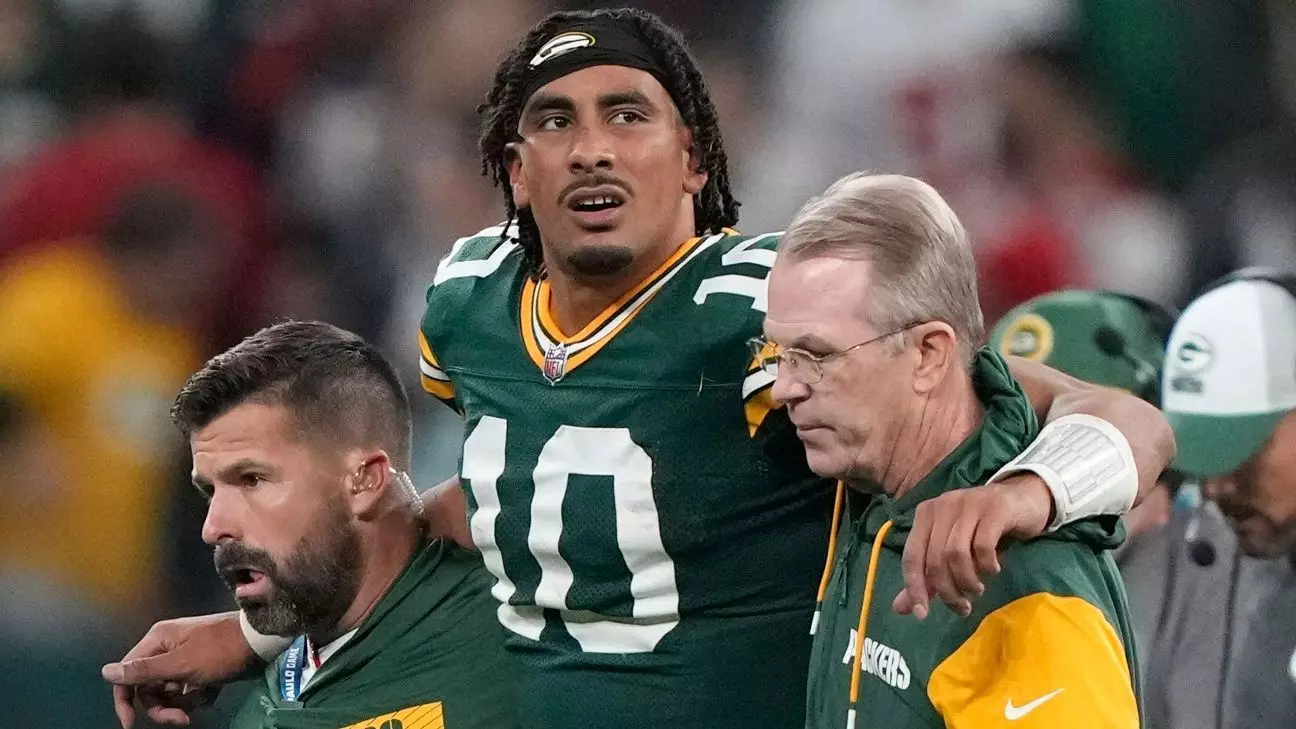As the Green Bay Packers approach their upcoming game against the Tennessee Titans, all eyes are on quarterback Jordan Love, who has made a comeback to practice just 12 days after suffering a knee injury. Initially feared to sideline him for much longer, Love’s quick recovery raises questions about the management of injuries, the dynamics within the team, and how the Packers will navigate the quarterback position going forward.
Jordan Love’s progress in returning to the field is noteworthy. After spraining his MCL in the season opener, doubts regarding the extent of his injury had left fans and analysts gripping for details. Remarkably, Love has only missed one game, which provided an opportunity for Malik Willis to step in as the starting quarterback. As Love donned a protective brace and returned to practice, the spotlight was fixed on how he would adapt back into his role.
His comments during practice shed light on the balance that athletes often face when recovering from injury. Love stated, “There’s just nothing like when it’s live bullets,” emphasizing the irreplaceable experience of being in a game compared to practice scenarios. This sentiment underscores the mental and physical challenges athletes encounter, where the pressure in a real game can differ dramatically from practice drills.
Moreover, Love’s awareness about the necessity of medical clearance and personal safety illustrates a mature approach to his health and well-being. His reassurances helped foster a sense of confidence among fans. However, this raises critical concerns about the longer-term effects of rushing back into gameplay, especially for a quarterback in a position that requires agility and quick decision-making under pressure.
While Love’s recovery is unfolding, Malik Willis has stepped up as a capable backup. His performance against the Indianapolis Colts was commendable, especially considering he had limited practice time before taking the field. Willis expressed respect for Love’s recovery, indicating a supportive, team-first mentality that is essential for a cohesive locker room.
Despite being traded from the Titans only a few weeks prior, he has demonstrated professionalism, viewing the upcoming game not as a personal vendetta but rather as a chance to contribute to his new team’s success. This highlights an important aspect of team dynamics—how players deal with transitions and adapt, prioritizing teamwork over individual sentiment.
Willis’s situation also brings forth the challenge that coach Matt LaFleur faces in finding a balanced approach to the dual threat at quarterback. LaFleur has to ensure that both Love and Willis receive adequate practice reps, which complicates the execution of the game plan when dealing with two starting-caliber quarterbacks.
As they prepare for the Titans, the Packers face significant strategic decisions in the coming days. Decisions regarding whether Love will start and how Willis is integrated into the offensive playbook will be crucial. With a heavy reliance on the running game—evidenced by the staggering 53 runs versus just 14 passes against the Colts—LaFleur’s offensive strategy might be contingent on which quarterback is ready to command the huddle.
The challenge will be not just in injury management but in maintaining a playbook that accommodates the strengths of both quarterbacks, a task made more complicated due to their different playing styles. LaFleur’s ability to adapt offensively could determine the outcome of the matchup, particularly if they run into a formidable Titans defense.
Ultimately, both Love’s anticipated return and Willis’s performance pose an intriguing narrative for the Packers this season. As fans await further updates, the balance between safety, performance, and teamwork remains a critical theme that will shape the trajectory of the team in the weeks to come. The unfolding dynamics between the quarterbacks will not only clarify their roles this season but also potentially influence the future of the franchise quarterback position in Green Bay.


Leave a Reply